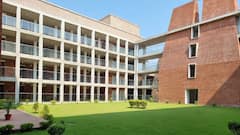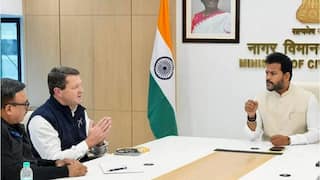CBSE Likely To Conduct Board Exams Twice A Year, Jan-Feb And March-April Among Options
The CBSE faces a dilemma in scheduling two rounds of board exams as per the new NCF, considering options like Jan-Feb, March-April, and June.

New Delhi: The CBSE faces a dilemma in scheduling two rounds of board examinations as recommended by the new National Curriculum Framework (NCF). The options under consideration include January-February, March-April, and June. Another option being explored is a semester system with biannual exams. Currently, board exams for Classes 10 and 12 are conducted in February-March.
Officials have indicated that consultations are ongoing and no final decision has been made about the timing and format for conducting board exams twice a year, as reported by the news agency PTI.
"The three possible options discussed are: conducting the exams in a semester system, with the first board exam in January-February and the second in March-April; or conducting the second set of board exams in June alongside supplementary or improvement exams," PTI quoted an official as saying.
However, due to the structure of the academic calendar, the schedule of competitive exams, and the geographical spread of CBSE schools, the semester system appears less feasible, the official added.
The board has informed the Union education ministry that more than 150 steps are involved in conducting the board exams for Classes 10 and 12 under the current system. The process requires a minimum of 310 days, from filling the list of candidates to the declaration of results, with at least 55 days needed for conducting the two exams.
The main challenge for the CBSE is replicating this massive exercise for a second round. Conducting exams before February presents its own difficulties, as some states experience harsh winters. The current schedule for board exams starts around February 15, so dates would need to be adjusted to allow a considerable gap.
Another option under consideration is conducting the second set of exams in June alongside the supplementary or improvement exams. However, none of these options are final, and brainstorming and consultations are ongoing. Additional options may emerge during this process, the official added.
The ministry initially planned to introduce biannual board exams from the 2024-25 academic session, but a year has postponed this. Prepared by the Union government-appointed national steering committee, led by former ISRO chairman K Kasturirangan, the new NCF aligns with the National Education Policy (NEP) 2020 and proposes a semester system for Classes 11 and 12 students.
The framework, released by the ministry in August last year, also suggests that students be given the option to write their board exams twice a year. Union Education Minister Dharmendra Pradhan stated in an interview last October that appearing for board exams twice a year would not be mandatory for students. They would have the option to take the exams twice, similar to the engineering entrance exam JEE, and choose their best score, but this would be entirely optional.
Also Read: 'IIT Madras Report On NEET-UG Unreliable, NTA Member Was Director': Students Tell Supreme Court
This is not the first attempt at reforming board exams. The Continuous and Comprehensive Evaluation (CCE) was introduced for Class 10 in 2009 but revoked in 2017, reverting to the old model of year-end exams. During the COVID-19 pandemic, the board exams for Classes 10 and 12 were split into two terms as a one-time measure, but the traditional year-end exams resumed this year.
Education Loan Information:
Calculate Education Loan EMI






































